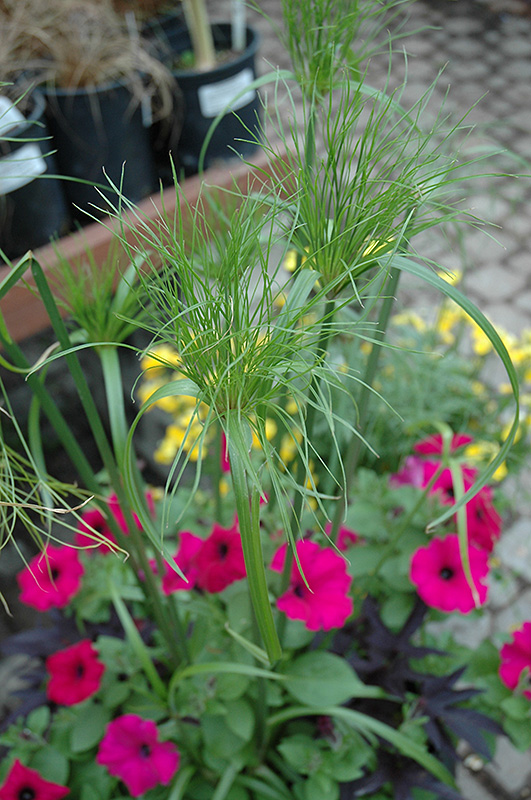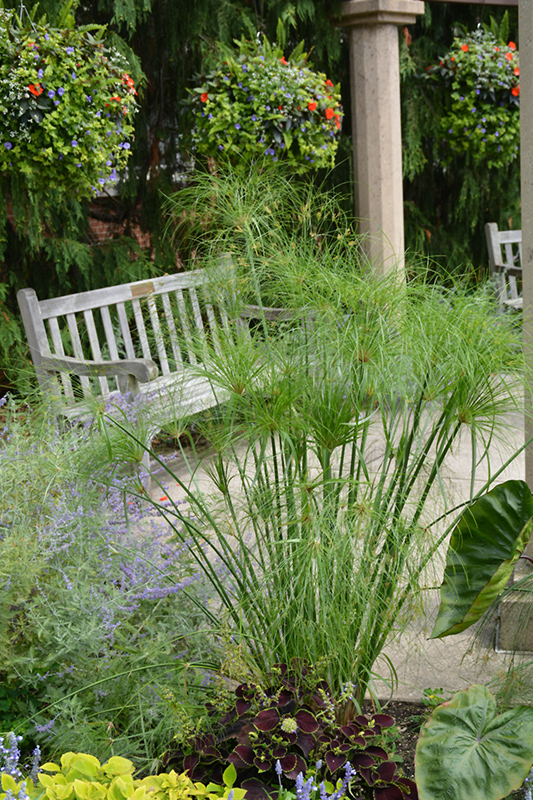King Tut Egyptian Papyrus
Cyperus papyrus 'King Tut'
Height: 6 feet
Spread: 4 feet
Sunlight:
![]()
![]()
Description:
This variety is a large semi-aquatic, grass-like plant producing long green stems with green bracts; perfect for pond side planting or in moist gardens; doesn't mind being submerged a few inches; also a great indoor container feature
Features & Attributes
King Tut Egyptian Papyrus' attractive grassy leaves remain green in colour throughout the year on a plant with an upright spreading habit of growth.
This is an herbaceous houseplant with an upright spreading habit of growth. Its relatively fine texture sets it apart from other indoor plants with less refined foliage. This plant may benefit from an occasional pruning to look its best.
Planting & Growing
When grown indoors, King Tut Egyptian Papyrus can be expected to grow to be about 6 feet tall at maturity, with a spread of 4 feet. It grows at a fast rate, and under ideal conditions can be expected to live for approximately 10 years. This houseplant will do well in a location that gets either direct or indirect sunlight, although it will usually require a more brightly-lit environment than what artificial indoor lighting alone can provide. It prefers to grow in moist to almost wet soil, and will even tolerate some standing water. As such, the surface of the soil should be kept consistently moist to the touch, and you can expect to water this plant two or more times each week, especially if it's growing in a lower-humidity environment. Be aware that your particular watering schedule may vary depending on its location in the room, the pot size, plant size and other conditions; if in doubt, ask one of our experts in the store for advice. It is not particular as to soil type or pH; an average potting soil should work just fine.
There are many factors that will affect the ultimate height, spread and overall performance of a plant when grown indoors; among them, the size of the pot it's growing in, the amount of light it receives, watering frequency, the pruning regimen and repotting schedule. Use the information described here as a guideline only; individual performance can and will vary. Please contact the store to speak with one of our experts if you are interested in further details concerning recommendations on pot size, watering, pruning, repotting, etc.
-- THIS IS A HOUSEPLANT AND IS NOT MEANT TO SURVIVE THE WINTER OUTDOORS IN OUR CLIMATE --


